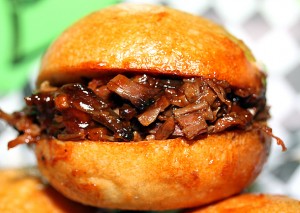Already pricey beef at grocery stores is expected to become even more expensive in February – wholesale beef and cattle prices are at all-time highs this winter in the United States, fueled by a tight supply of cattle.
Prices for slaughter-ready cattle soared this month because the shutdown of packing plants during the Christmas and New Year’s holidays constricted the flow of steaks and roasts to supermarkets and restaurants.
With the U.S. cattle herd already at a 61-year low of 89 million head, supplies tightened further as waves of unusually cold weather slowed cattle weight gains and delayed the movement of livestock from feeding yards to slaughterhouses.
But consumers should catch a brief break once arctic temperatures ease and warmer spring weather allow cattle to put on weight more easily and get to market quicker. Packing plants also are expected to lower the price that they charge grocers for beef in the face of a brewing pushback against high prices, economists said.
“You can take cattle up as high as you want, and when does the consumer get a chance to vote?,” said Don Roose, president of U.S. Commodities in West Des Moines, Iowa.
There are limits to the price relief, however. Despite some short-term easing, economists forecast beef prices to hover around record highs for at least two more years.
Beef will become tougher to find in grocery stores as retailers choose to feature chicken and other less costly meats, said John Ginzel, analyst with brokerage firm The Linn Group in Chicago. Exorbitant beef costs will cause major damage to retailer orders for the next 60 days, he added.
“Once this winter weather and supply flow disruptions end, there is going to be a very limp demand out there on the part of grocers and consumers. It’s going to take a lot of downward price reaction to buy some of that back,” said Ginzel.
The outlook for a temporary drop in U.S. beef costs comes as global prices also are expected to moderate because of waning demand from shoppers suffering sticker shock.
Find the entire article by Reuters <here>




